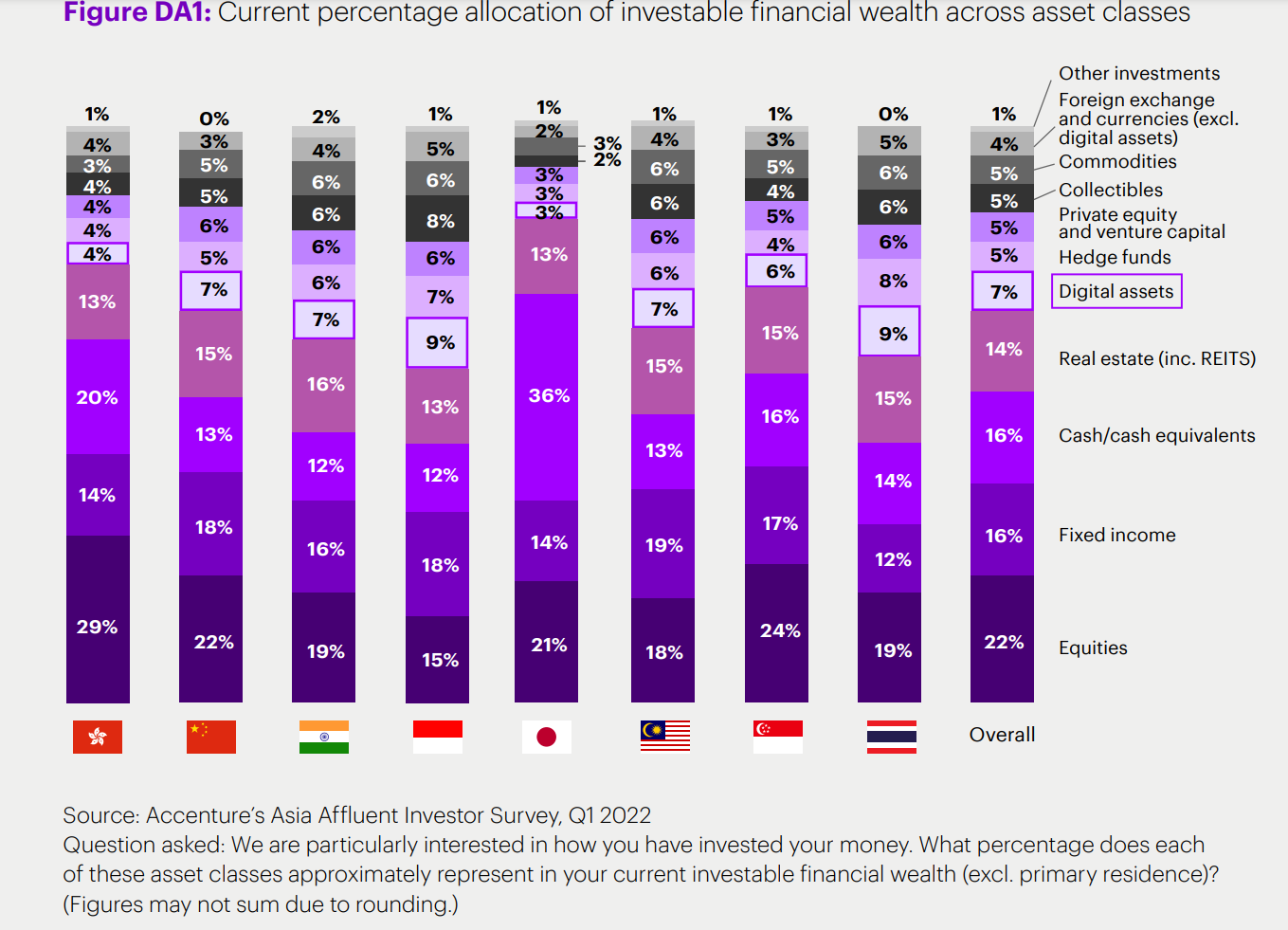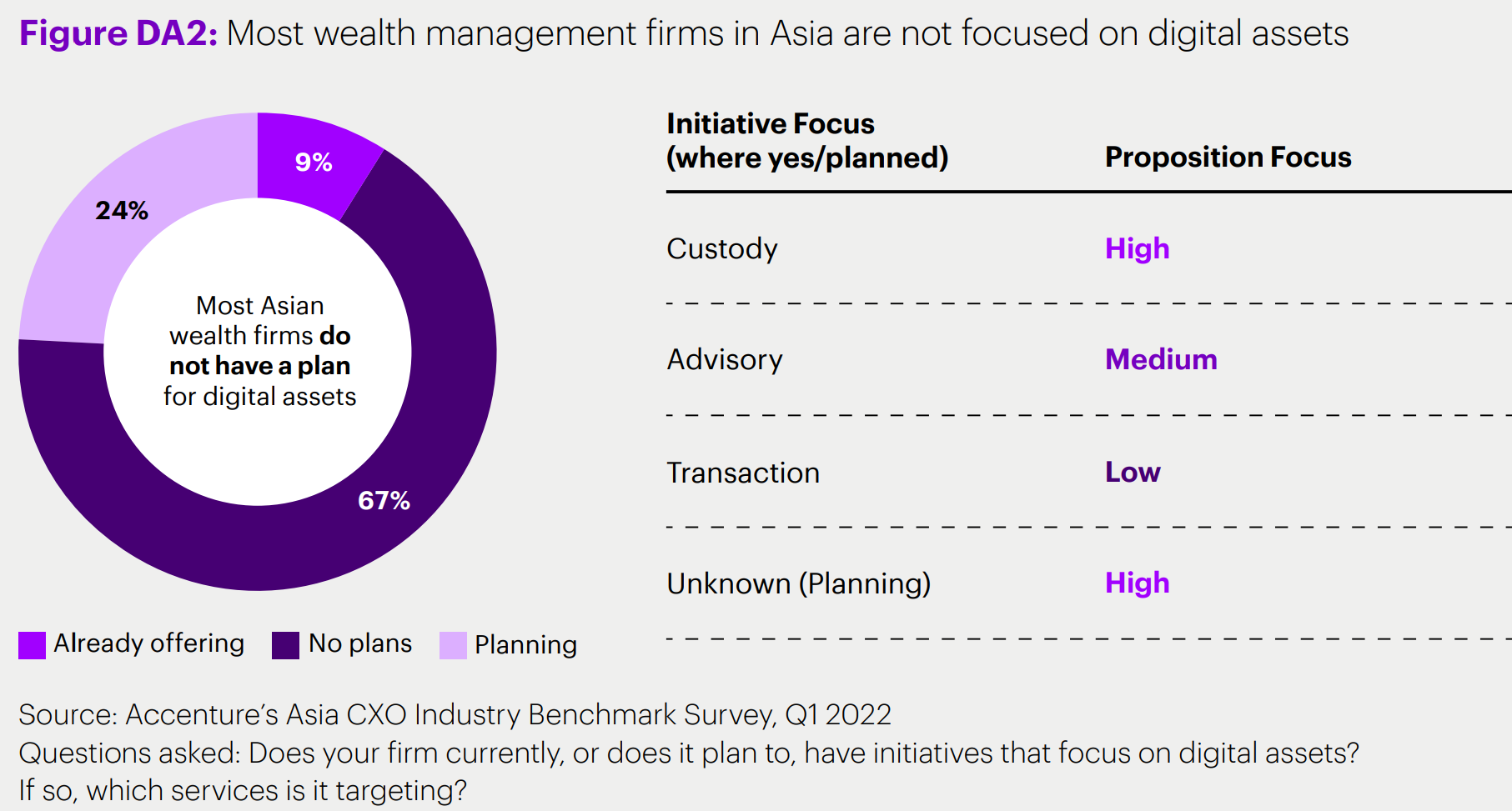According to research, in Q1 2022, 52% of affluent Asian investors had some digital assets in their portfolios.
According to Accenture research published on June 6, digital assets such as cryptocurrencies, stable coins, and crypto funds accounted for an average of 7% of investors’ portfolios, making it Asia’s fifth-largest asset class.
The report quoted: “Digital assets are a top-five asset class for investors in Asia. On average, affluent investors in Asia allocate seven percent of their portfolio to digital assets—more than forex, commodities or collectibles”
More than 3,200 clients in China, Hong Kong, India, Indonesia, Japan, Malaysia, Singapore, and Thailand were surveyed by Accenture. The corporation defines an affluent investor as someone with investable assets of at least US$100,000 but no more than US$1 million.

Digital assets made up a larger percentage of investors’ portfolios in Thailand and Indonesia than in other countries.
By 2022, Accenture’s analysis suggests a further 21% increase in the number of rich Asian investors who plan to invest in digital assets. Because of this, by the end of the year, as many as 73 percent of these investors might own some form of a digital asset.
“Digital assets represent a rare, clear industry white space with a significant business opportunity.”
Wealth managers are still holding back.
According to the research firm, wealth management organizations, which provide financial planning, tax, investment, and estate planning, have been hesitant to embrace the crypto revolution. There are no intentions to offer digital asset products or services as per 67 percent of wealth management organizations.
“For wealth management firms, digital assets are a US$54bn revenue opportunity— that most are ignoring. Transaction fees represent US$40bn of this potential revenue pool, with the rest shared equally between advisory fees and custody fees. Yet two thirds of wealth management firms in Asia have no plans to offer any form of digital asset proposition. Most of those that do are targeting the relatively small US $ 7 bn custody element only.”

Digital asset offerings are being held back by wealth management businesses because they lack the belief and knowledge of digital assets and the operational complexity of launching a digital asset service. Hence, they employ a wait-and-see attitude.
Accenture claims that investors have been forced to rely on dubious sources for their crypto-financial advice because of a lack of interest from financial institutions.
As a result, many clients are turning to unregulated venues, such as peer-to-peer counsel on social media, for guidance on digital assets.”
Accenture has emphasized the relevance of wealth management organizations moving into the digital asset area.
Many companies are afraid to enter the digital assets area for various reasons, but their competitors have demonstrated that success is attainable.
Asian investors have shown a growing interest in cryptocurrency in the previous year.
Earlier this year, a survey from the Gemini cryptocurrency exchange indicated that the adoption of crypto in 2021, notably in nations like India and Hong Kong, was on the rise. In 2021, almost 45 percent of Asian Pacific respondents will buy their first cryptocurrency.








